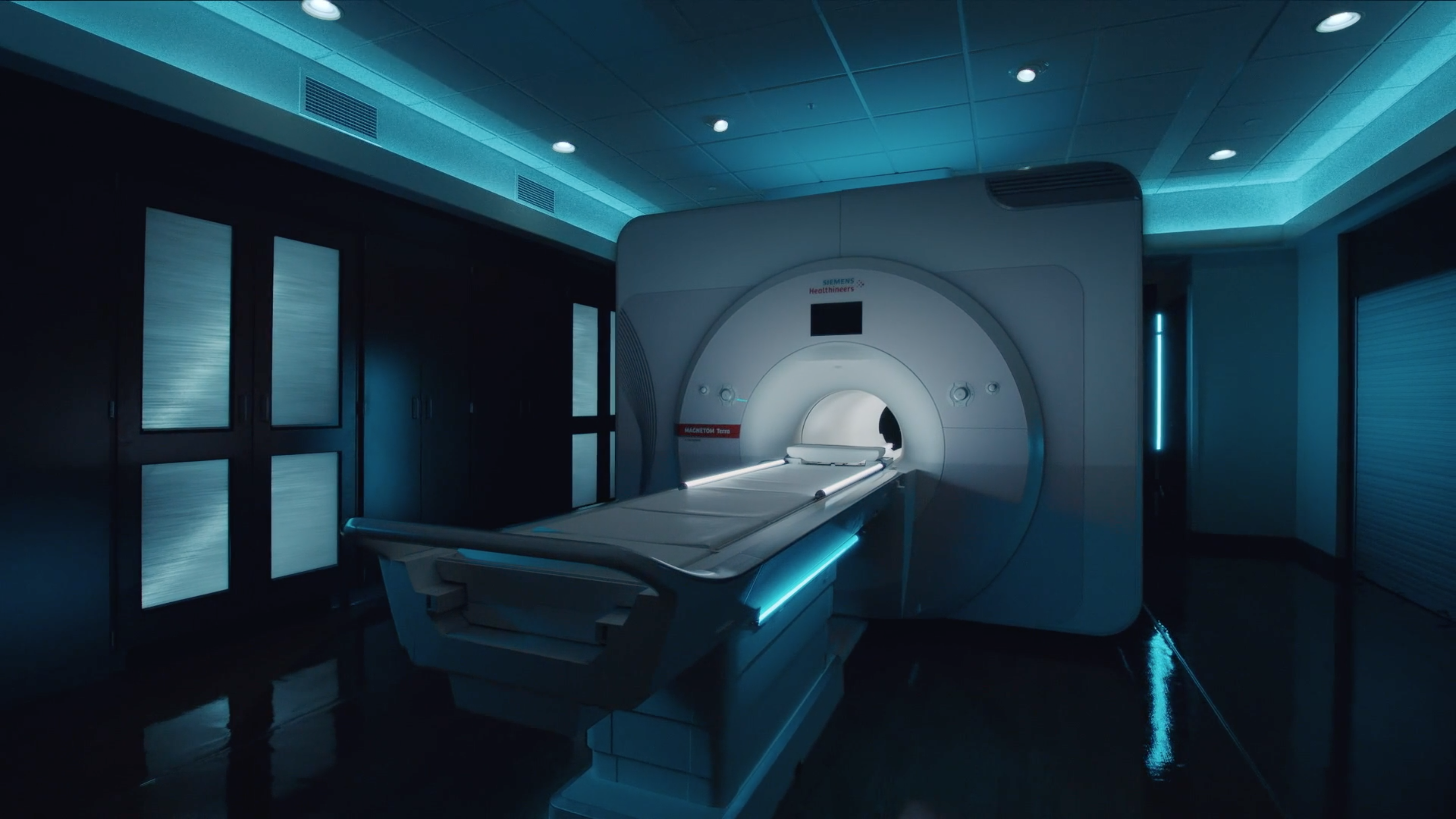No, it wasn’t the giant magnet that powers the MRI. It was the anticipation of groundbreaking research, advanced imaging capabilities and breakthrough therapies for patients across our community and our country.
With the arrival and installation of this critical, rare machine comes a research team dedicated to using this revolutionary equipment to get clearer, more defined images of the spine, brain and other hard to see areas of the body.
These studies can lead to a better understanding of diagnosing and treating Alzheimer’s disease,Parkinson’s disease, traumatic brain injury (TBI), rheumatoid arthritis and more.
Jennifer Eardley, PhD, vice president, Research, Carle shares excitement in the possibilities to come with this new 7T research team.
“It’s exciting, to say the least, that we have some of the country’s best researchers joining us here at Carle,” Eardley said. “As one of a few facilities in the country with at 7T designed for both clinical and research use, we are truly placing ourselves at the forefront of some of the most critical medical research and imaging services.”
Eardley credits a strong partnership between the Stephens Family Clinical Research Institute at Carle and the University of Illinois in forming Carle Illinois Advanced Imaging Center, which will be the research team’s home base.
.jpg)
The team, led by Bruce Damon, PhD, director, Carle Clinical Imaging Research Program, will focus on opportunities to apply clinical knowledge and new techniques to make an impact on the way patients receive treatments and therapies. He also serves as the co-director of the Carle Illinois Advanced Imaging Center.
The team will officially begin their research in early March 2021. Sheeba Arnold, PhD, clinical investigator, Carle Illinois Advanced Imaging Center, is one of the researchers joining this team. Arnold, who joins Carle with credits from Northeastern University and Massachusetts Institute of Technology (MIT), will focus heavily on the brain and neurosciences.
 As a biomedical engineer, the ability to bridge medicine with engineering is a motivator for her work.
As a biomedical engineer, the ability to bridge medicine with engineering is a motivator for her work.“With the 7T, we have the ability to push spatial resolution,” Arnold said. “We will be able to see tiny structures of the human body that are typically challenging to see with lower field strengths. For me, this machine is truly a window to the brain.”
Joining Damon and Arnold is also Mark Whiting, PhD, clinical investigator, Carle Illinois Advanced Imaging Center.
Whiting also credits the 7T’s power and ability to capture clear detailed images that are currently not possible with any other machines. For example, this machine will allow Whiting to observe perivascular spaces, the tiny fluid-filled space surrounding the brain’s blood vessels—something difficult to capture without the 7T’s powerful imaging capabilities.
He looks forward to studying how these function and how they are affected by stroke and TBI.

“The 7T will enhance our basic understanding of how trauma and other conditions affect the brain. We have the potential to uncover novel findings that could lead to new treatment approaches,” Whiting said. “It is very rare for a magnet like this to be available for both clinical and research use. I am very excited about the discoveries that lie ahead.”
The team is supported by physicians and research staff from Carle Health and the Beckman Institute for Advanced Science and Technology at the University of Illinois Urbana-Champaign. The research done by this team will have ripple effects that impact how care is delivered in the future.
Arnold understands the bigger picture of how the research her team will directly impact the health and wellness of many patients.
“Take autism spectrum disorder, schizophrenia and major depressive disorder—my primary research interests. 7T will augment precision medicine in psychiatry,” Arnold said. “Understanding these disorders will be really relevant for patients and the community as a whole. There is a lot to be discovered.”
Visit the Carle Illinois Advanced Imaging Center on carle.org to learn more about the 7T and its impact on research.
Categories: Redefining Healthcare
Tags: “7, cancer, imaging, MRI, neurosciences, partnership, research, Tesla”, University of Illinois
